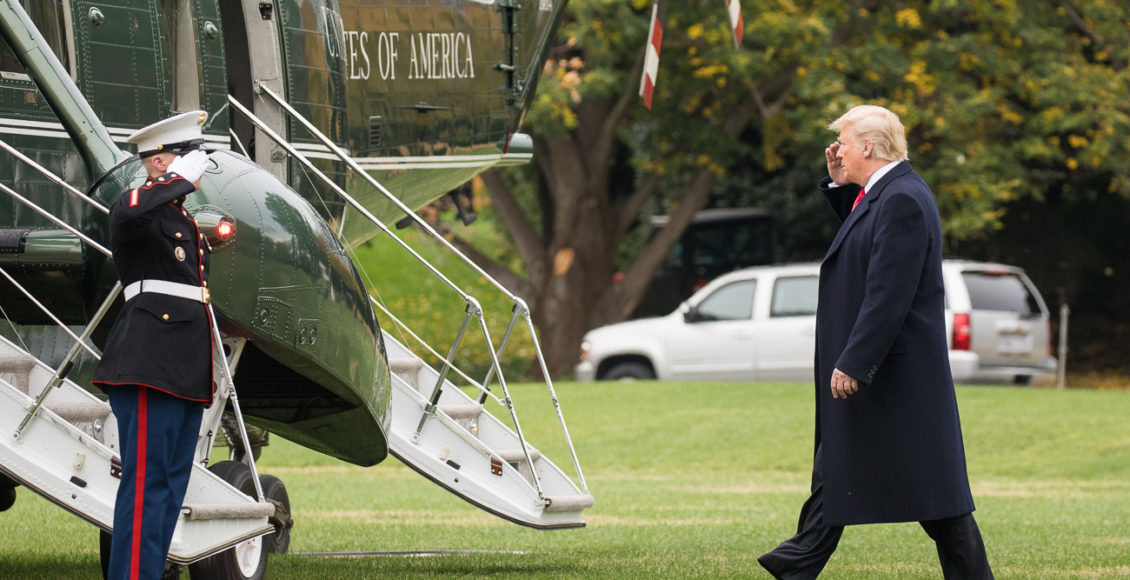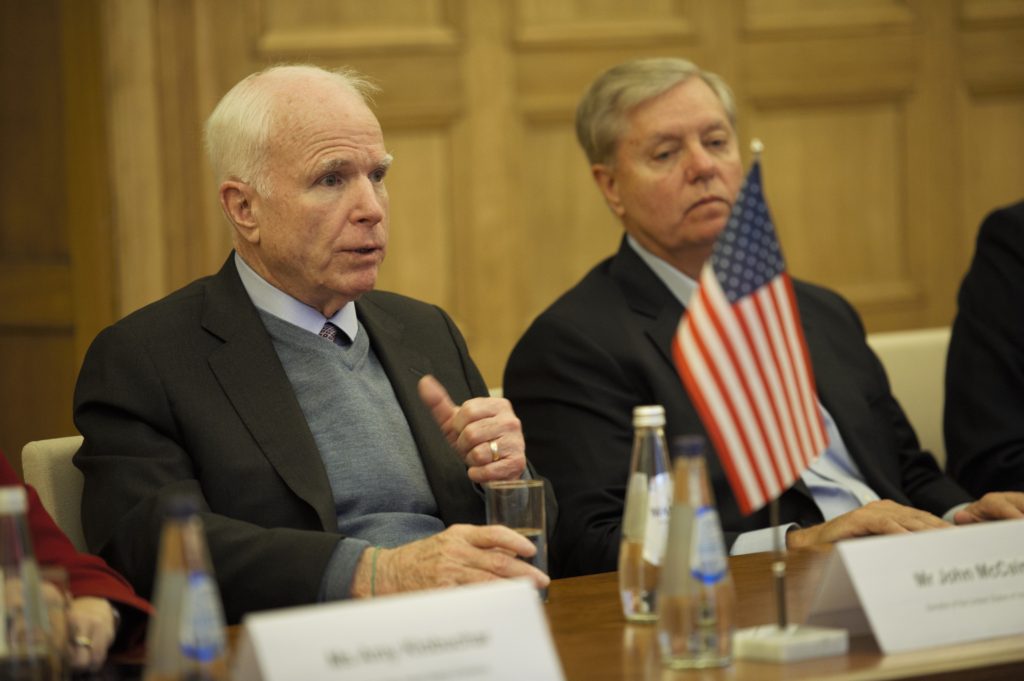Polarity or Toxicity?
 South Lawn Departure | https://flic.kr/p/QtdsTC
South Lawn Departure | https://flic.kr/p/QtdsTC
Ten years ago, the Late-Senator John McCain took the stage in a town-hall event as part of his 2008 Presidential Campaign. With cameras rolling, an unidentified woman came up to Mr. McCain and said, “I can’t trust Obama. I have read about him, and he’s not, he’s not–he’s an Arab.” Visibly shaken, Mr. McCain reclaimed the microphone and shook his head in disbelief.
“No ma’am,” Mr. McCain said. “He’s a decent family man, a citizen that I just happen to have disagreements with on fundamental issues, and that’s what this campaign is all about.”
As the event went on, Mr. McCain repeatedly defended his competitor much to the dismay of his more ignorant supporters. “He is a decent person and a person that you do not have to be scared of as President,” Mr. McCain said. “If I didn’t think I’d be one heck of a better President I wouldn’t be running, and that’s the point. I admire Senator Obama and his accomplishments, [and] I will respect him. I want everyone to be respectful, and let’s make sure we are. Because that’s the way politics should be conducted in America.”
When Senator McCain died in August of this year, political decency died with him.

This “death” of political decency has unsurprisingly coincided with the heightened polarization of American politics and the rise of political participation among populations whose beliefs were contested–but un-changed–by the Civil Rights Movement in the 1960s. After landmark Supreme Court Cases like Brown v. Board of Education established constitutional protections for African Americans, Southern-Democrats–and those they represented–realized they could no longer subjugate minorities under the politics of Jim Crow without federal reprieve. In this regard, these individuals were deprived of their political agency, a deprivation which effectively resulted in their political “silence”.
President Trump changed all that.
In 2008, Americans with harsh and bigoted beliefs–like Donald Trump–sought to delegitimize President-Elect Obama with unfounded, racially-charged claims. For instance, consider the Birther Movement which began as an online conspiracy theory perpetuated by the alt-right–a collective of “fringe” Americans with strong xenophobic, homophobic, and racist beliefs. In essence, the anonymity of the internet and its widespread availability returned social and political agency to these individuals in the alt-right. To further exacerbate this issue, popular websites like Reddit and 4chan have entrenched rhetorical style in politics with the use of bombast and absurdism that often veils racist tropes beneath conceptual riddles. All in all, the rise of the internet empowered individuals in the alt-right to re-express themselves to the masses; and in doing so, they quickly realized they were not alone in their hate. Over time, the alt-right perfected somewhat of a “digital cult” and found respite in a collective identity that softened its self-loathing and legitimized prejudice.
In 2016, the election of President Trump allowed this online proliferation of hate to permeate the bounds of the internet and restored bigotry to institutionalized politics.
Since that time, and in keeping with his alt-right tendencies, Mr. Trump has mastered the politics of division, but at great cost. Mr. Trump has divided Americans among gendered lines in his rhetoric which has arguably subjugated and dehumanized women. Mr. Trump has divided Americans among racial lines in his assertion that Mexicans–and Latin Americans more generally–are merely a collective of rapists, thugs, and criminals. Lastly, Mr. Trump has divided Americans along social lines when, as in Charlottesville, he refuses to take an official stance because, “there were very fine people on both sides”. Perhaps Florida Gubernatorial Candidate, Andrew Gillium, described the principles of “Trumpism” best: “Now I’m not saying he’s a racist, I’m simply saying the racists think he’s a racist.”
Now to be clear, an individual’s right to freedom of expression should not be infringed no matter how bigoted or unpopular his political or social beliefs. However, democracy is, and always has been, an act of balancing freedoms–a principle made famous by Supreme Court Justice Oliver Wendell Holmes Jr. in Schenck v. United States (1919). In 1919, Justice Holmes found that while the First Amendment certainly protects the freedom of expression that the scope and degree of this freedom can and should be limited [balanced] when it threatens another constitutional protection. From this, the famous expression emerged that one cannot “shout fire in a crowded theater.” Nearly 100 years later, this principle remains unequivocally central to democracy–both in the United States and elsewhere. While prejudice cannot be silenced, it must be balanced against, and it remains the duty of government to do so. But under President Trump, the government has disturbingly given agency and voice to the prejudiced and further silenced the oppressed. Institutionally, this trend cannot continue, and yet it has.
As former-President Obama said, “Appealing to tribe, appealing to fear, pitting one group against another, telling people that order and security will be restored if it weren’t for those who don’t look like us or don’t sound like us or don’t pray like we do–that’s an old playbook,” he said. “It’s as old as time. And in a healthy democracy, it doesn’t work. Our antibodies kick in and people of good-will from across the political spectrum call out the bigots and the fear-mongers and work to compromise and get things done and promote the better angels of our nature.”
American democracy isn’t healthy; it’s sick. But fortunately, this sickness need not be absolute.
Edited by Pauline Werner.
